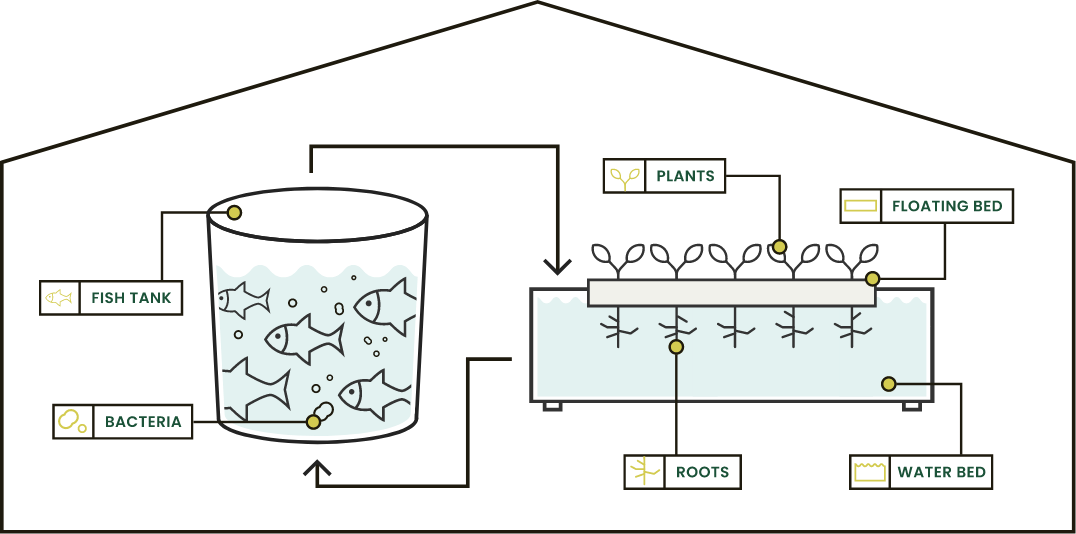Our Produce
Aquaponics systems can grow a wide variety of vegetables, however, the best type of plants to grow are leafy greens and herbs that consume primary nitrogen. Fish produce a natural nitrogen-heavy fertilizer which is ideal for these crops. Seeds are started in the germination area where they grow for 2-3 weeks. Seedlings are then transplanted into the aquaponics system where they take just 21-28 days to reach maturity. With water, dissolved oxygen, nutrients from fish waste, and a controlled environment, aquaponically grown plants can yield 5-10 times more each year than soil-based farming methods, all while using 90% less water.




















